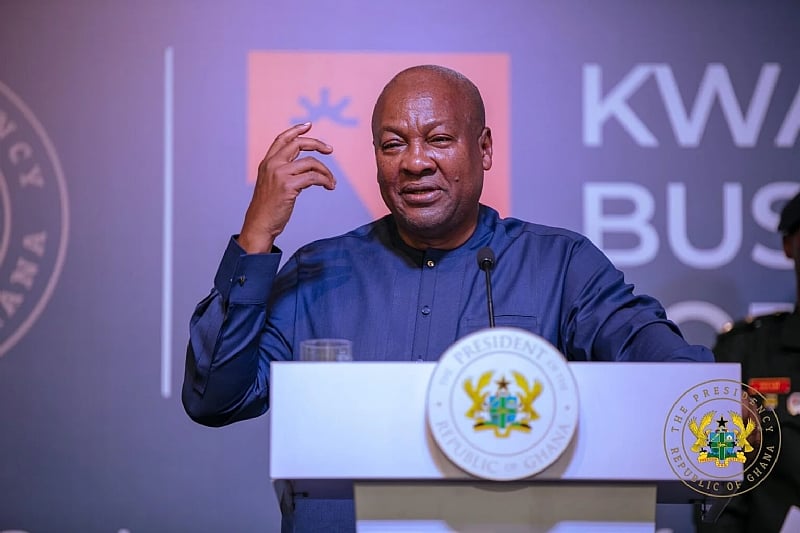President John Dramani Mahama’s address during the 2025 May Day celebration in Accra highlighted a critical concern regarding the financial health of State-Owned Enterprises (SOEs) in Ghana. He pointed to a disturbing trend of once-profitable SOEs accumulating significant debt, citing GIHOC Distilleries as a prime example. Mahama questioned how a company producing alcohol, a commodity with consistent demand regardless of economic conditions, could incur such substantial losses, contrasting its current performance with its profitability during his previous presidency. He emphasized the collective responsibility of all stakeholders, particularly the workers within these institutions, to ensure their effective and sustainable operation.
Mahama’s appeal to workers centered on the concept of ownership and vigilance within their respective SOEs. He urged them to actively participate in the safeguarding of these institutions by speaking out against mismanagement, inefficiencies, and any practices that could jeopardize their financial stability. He stressed that employees are not merely cogs in the machine but rather integral stakeholders with a vested interest in the success of their enterprises. By fostering a culture of transparency and accountability, where workers feel empowered to identify and address potential issues, Mahama believes SOEs can regain their footing and contribute meaningfully to national development.
The President’s call for action comes at a time of increased scrutiny of SOE performance. Stakeholders, including citizens, economists, and policymakers, are demanding greater transparency and improved management practices. The growing debt burden of these institutions raises concerns about their long-term viability and their ability to contribute to the nation’s economic growth. Mahama’s message aligns with this broader call for accountability, emphasizing the role of internal oversight, particularly by the workforce, in complementing external scrutiny.
The GIHOC Distilleries case serves as a potent illustration of the challenges facing SOEs in Ghana. The company’s reported losses, totaling over GH₵50 million in two years, are particularly perplexing given the consistent demand for alcoholic beverages. Mahama’s rhetorical question about how an alcohol producer could be in debt underscores the apparent disconnect between market realities and the company’s financial performance. This raises questions about potential mismanagement, inefficiencies, and perhaps other underlying issues that require thorough investigation.
The President’s emphasis on collaboration and mutual respect between employers and employees is crucial for creating a conducive environment for addressing the challenges facing SOEs. He called for a renewed commitment from both sides to work together toward the common goal of a prosperous and equitable Ghana. This collaborative approach recognizes that the success of SOEs depends on the combined efforts of management and the workforce. By fostering a culture of open communication and shared responsibility, the potential for positive change within these institutions is significantly enhanced.
Mahama’s May Day address serves as a timely reminder of the importance of SOEs to Ghana’s economic landscape. His call for worker vigilance and proactive engagement in addressing mismanagement and inefficiencies is a crucial step towards ensuring their long-term viability and contribution to national development. The GIHOC Distilleries case exemplifies the potential consequences of unchecked mismanagement, while the President’s emphasis on collaboration and accountability offers a pathway towards a more sustainable and prosperous future for these vital institutions. The challenge now lies in translating these words into concrete action, fostering a culture of transparency and responsible management within SOEs, and empowering workers to play their part in ensuring their success.














